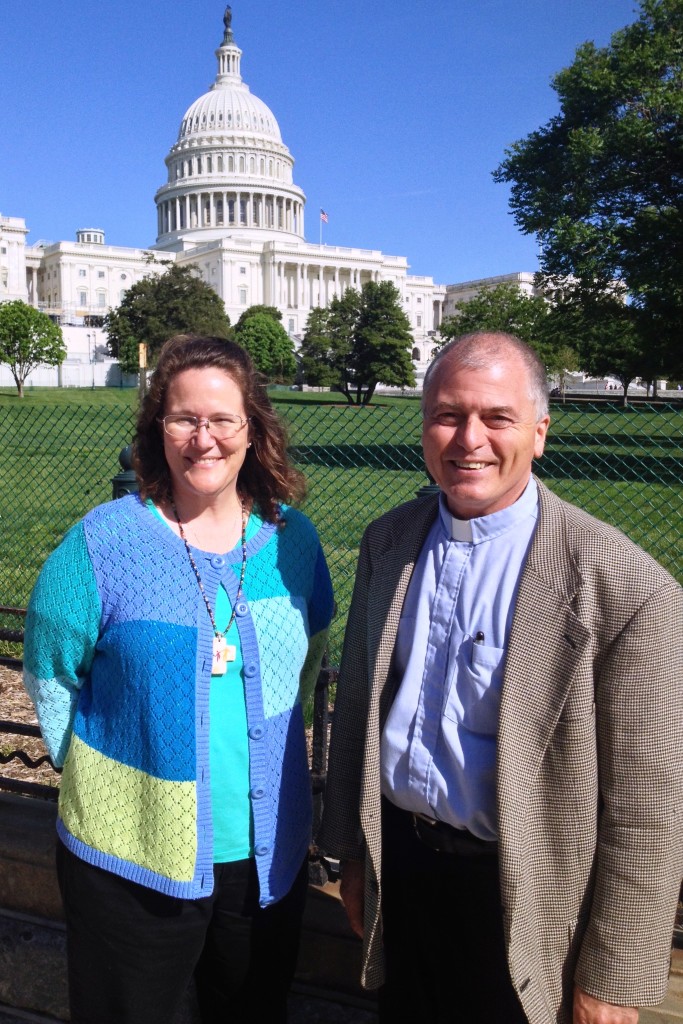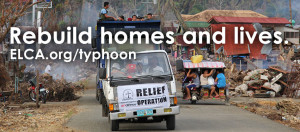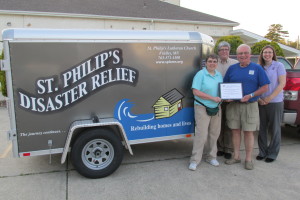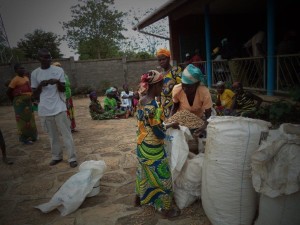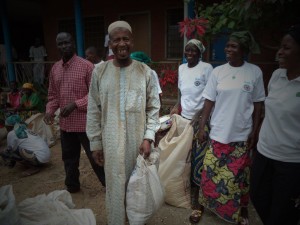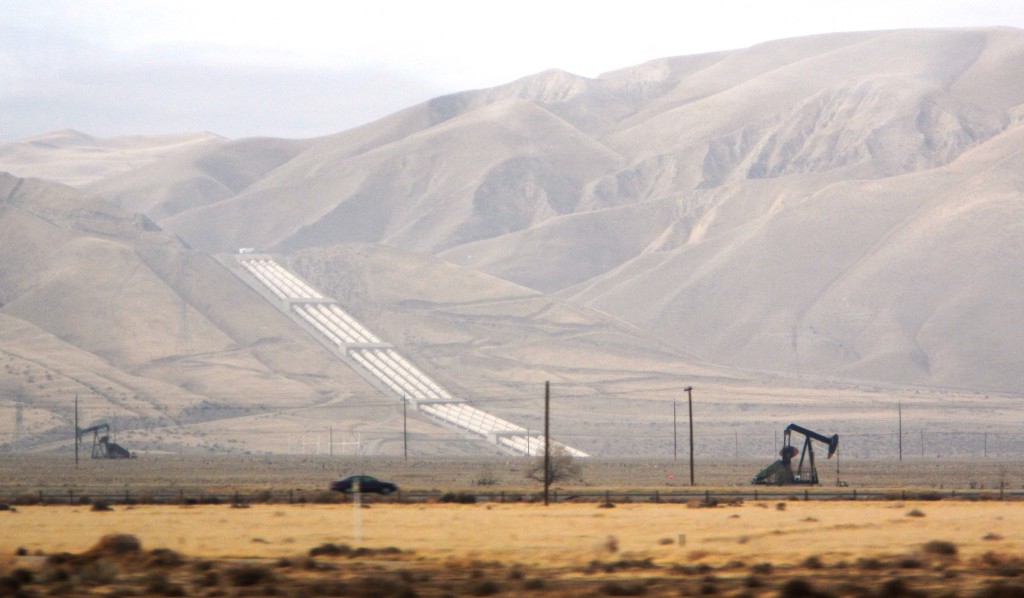May 12, 2014
Last week, the Lutheran Office for World Community (NY) hosted the 2014 Nolde Seminar on Theology and Human Rights. The seminar explores questions about the dignity of human life, its relation to Christian and spiritual values, and the challenges facing the international community. This call to focus on international human rights was inspired by Dr. Frederick Nolde and his family. Dr. Nolde was Dean of the Lutheran Theological Seminary in Philadelphia and taught Christian Education from the 1940’s through the 1960’s. He helped influence the UN Charter in promoting global human rights, and wrote the Religious Freedom section in the United Nations’ Universal Declaration of Human Rights.
Lauren Blatt, who is presently attending the Lutheran Theological Seminary in Philadelphia to achieve a Master’s of Divinity, gives us her insights into the 2014 Seminar below.
—
Finding God’s Work
The thing about God is that you can never be quite sure what God is up to… As people of faith, we look at the entire world through theological spectacles even when we don’t try. It’s not a conscious recollection of what God has done in our lives or a realization of what God is doing in our lives. This is just how we see the world and how we see God. That is not to say that we don’t get angry or throw our hands toward the heavens in exhaustion and wonder at times why God has yet to make things right. We expect quick answers, we expect our infinite and intimate God to topple the systems of oppression in our society, but that is not quite who our God is…Our God is a God who shows up in the suffering. Our God shows up in the last reasonable place we would ever think to look. Our God shows up in a stable, walking the dusty roads, and on a cross to die the death of a criminal.
What is more, our God shows up to fight for justice with us. Our God accompanies us as we consider the evils of our society. Our God opens our eyes and breaks our hearts when the least, the last and the lost experience great upsets—Suddenly we realize that WE ARE the least, the last, and the lost. We realize that we have nothing more than the marginalized, the downtrodden, or the heartbroken. We have what they have, namely Jesus the Christ.
Over a three-day stint we met with members of the United Nations community. We met with people affiliated with faith-based organizations, and we met with individuals who worked on a strictly secular basis. We heard speakers from across the world and within various different disciples. We heard about apartheid in the Holy Land, the reconciliation efforts in South Africa, the global food crisis, and many other important topics. We were exhausted, not simply because we were jam packed with speakers, but because we were moved and propelled by the Holy Spirit to consider action. Our hearts were moved by God through the mouth of every speaker to seek justice and love mercy, all the while knowing that Christ walks with us in our times of great triumph and immeasurable pain.
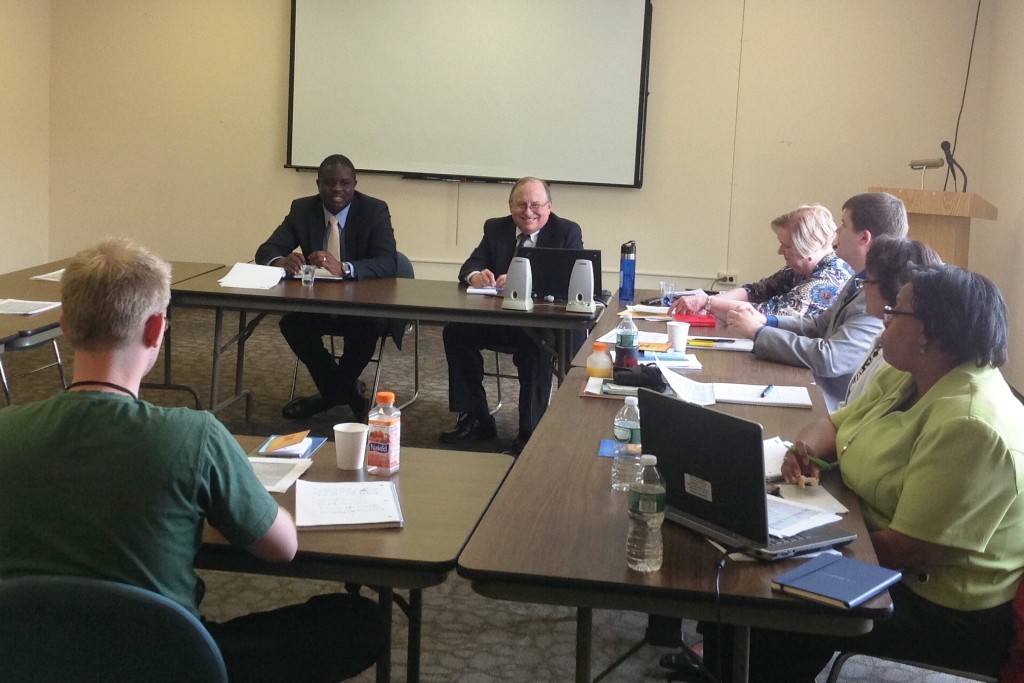
We began to recognize the myth that our church is dying—that all churches are dying. We were moved to realize that our God is doing something amazing in this world, our God is doing something incredible in this world, our God is doing something in this world—it is so bright. God is not finished with this world, and our God loves us more than anything we could ever imagine. Our God is a God of abundance—abundant love, blessing, perseverance, and above all abundant accompaniment—our God will never leave us.
Living Through Christ
The author of the Gospel of Luke writes (referring to Jesus), “We had hoped that he was the one to redeem Israel…” There is nothing that gets to the heart of disappointment, the heart of what it meant to be human than to say, “We had hoped”. It refers to the disciples’ hope that Jesus was the one that they had waited for throughout history—the one who would finally take away the pain. The disciples knew what it was like to live in a world of sin and death. Even after Jesus is raised from the dead, it is clear that the disciples and the rest of the human populace still live in a world of sin and death—they still live in a field of crosses. Each and every one of us is still hanging on the cross because we have not yet been raised. A life lived for Christ, a life propelled by Christ, is a life that is lived cruciform. We live in relationship to God (vertically), but the only way that this relationship works is through the relationships that we have (horizontally) with our brothers and sisters on earth. It is through our love for our neighbors that we are able to love God. When we realize that Christ is in every person our hearts burn in the knowing, but our hearts also burn with justice—knowing that the grace that God has given us is one that demands a response. This response remains separate from our salvation, but it is a response that happens when the grace of God overflows from our cups.
The reality of the United Nations is one that we, as Christians, and as humans can be proud of… like Mother Theresa writes, “We have forgotten that we belong to one another”. We belong to each other. We are all one. We must take action against sin, death, and the devil—we must take action against injustice because every human has inalienable rights that reflect the human’s relationship to God. We are made in God’s image and because of this reality we are bearers of God. God resides in us, our faces reflect the face of God, and actions against humanity—crimes against humanity, against human dignity are against God. There is much work to be done in our world, and we recognize how easy it is to throw our hands in the air after pure exhaustion, but the reality is that our God calls us to action. To steal the Evangelical Lutheran Church in America’s phrase, “It’s God’s work, our hands”.
Jonathan, Trena, Joshua, Theresa, Jessica, Daniel, and I were honored to spend time with representatives to the United Nations and our brothers and sisters in Christ.
—
Want to learn more about ELCA’s commitment to advocating for public policy that creates opportunities to overcome poverty, promotes peace and justice, and supports the care for creation?
Visit our website
Like us on Facebook
Follow us on Twitter
